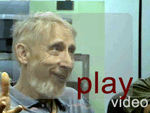Virtual Visits to knowledge building environments supported by the collaborative multimedia software, Knowledge Forum®
Networks are ubiquitous, but the social engineering of networks for effective action is in its infancy. A common pattern of network social behavior is the progressive splitting of discussions and newsgroups into smaller sub-discussions or groups devoted to narrower interests. Effective action in any sphere typically calls for the reverse process the joining together of people with diverse talents and interests to achieve common goals. We have derived a principle that seems essential to the success of any knowledge-building network intended to bring together people with diverse agendas. It is the principle of symmetric knowledge advancement-- a variant of what is more popularly known as creating win-win situations. In an educational context this means that participants in a network are able to advance their own knowledge-building agendas by helping other participants advance theirs. Our virtual visitations are an attempt to create online environments facilitating symmetric knowledge advances. (Scardamalia)
Multimedia stories offer teachers, researchers and others an opportunity to visit selected aspects of Knowledge Forum® databases. Unlike a visit to an entire Knowledge Forum® database, these stories highlight knowledge building moments in the database where teams are working collaboratively to create new knowledge for their community. Each visit is presented from the perspective of participants providing the visitor with an understanding of how learning takes place in social school settings where talk and action among people with different skills motivate intellectual development.
Constructing these virtual visitations required a degree of openness to scrutiny far beyond what is normally experienced by teachers and students (Scardamalia, 1999). In doing so, they developed an ever-increasing ability to deal with knowledge as such to construct it, view it from different perspectives, criticize it, improve it.
These stories represent a design experiment or formative research to test and refine educational designs based on knowledge building theory and practice. We hope that these stories will support reflecting on best practices with colleagues, sharing of expertise in a distributed knowledge framework, and in developing a deeper understanding of new instructional approaches, standards, and curriculum.
These projects are supported by the Social Sciences and Humanities Research Council of Canada : INE Outreach Grant
 technology supporting innovation
technology supporting innovation 

